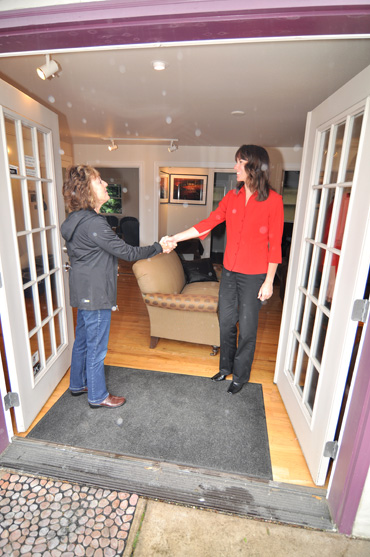Anxiety

The occurrence of anxiety is a powerful reminder of the mind-body connection that exists. Anxiety is a set of physiological reactions that occur in your body. Especially, trembling, heart racing, sweating, and a set of beliefs or assumptions that affect your thoughts and behaviors. Panic attacks, sleepless nights, chronic worry, irritability, avoidance of places, persons, or things are just a few of the ways anxiety can dramatically affect your quality of life.
A common, yet very painful form, of anxiety, is social anxiety. Social anxiety is different from shyness or introversion, which can also affect your comfort in interacting with people. Treating introversion involves coming to understand and accept your natural way of recharging energy after social interaction. Social anxiety occurs when someone’s negative fear-based beliefs about themselves affect their comfort level in various social situations. Whether it is talking to people at a party, returning something to a store, learning how to do something new in front of others, or talking on the phone. Social anxiety can have a tremendous impact on your daily social interactions.
Treatment of Anxiety and Depression
Treatment of anxiety includes examining this mind-body connection. In treatment, you will work to identify and transform the inaccurate beliefs about yourself that limit you socially. In addition, you will develop self-soothing skills and increase your ability to cope effectively with all types of social situations. You will learn to identify the physiological warning signals connected to certain feelings and thoughts. Together, we will examine your beliefs attached to prior anxiety-provoking events. Alternatively, these with be replaced with more accurate, life-sustaining beliefs. You will identify parts of your life that have been damaged or avoided due to anxiety and depression. Importantly, you will gradually bring those missing parts of your life back into existence.
Depression
Depression co-occurs frequently with anxiety. It can be successfully treated. Importantly, it requires a willingness to do the work. Healing depression involves engaging in a process that brings emotions and unhelpful beliefs to the surface to be worked through, understood, and transformed.
Dealing with these beliefs and emotions is not easy but, is very achievable. This CAN be done without medication! If you listen to the drug companies you might believe that medication is the only treatment for depression. IT IS NOT! Medication is a personal choice for treatment for depression. For some, medication may be the right choice but, it is not the only choice. Medication will not heal depression, counseling can. If you believe you need medication for depression you will need to consult with a doctor or psychiatrist as they can prescribe medication and we cannot.
Using both medication and counseling together to treat depression has the highest rate of reported success, according to clinical studies. We believe that it is experience that forms us and it is experience that transforms us. Our approach to treating depression is to help you create an experience that transforms you from being depressed to feeling good about yourself, your life, and others around you. Treating depression will involve movement. This might mean becoming more physically active, taking action in your life, or moving through stuck feelings. Getting help starts with a phone call to set up an appointment. This is the first movement required.

